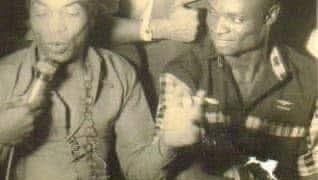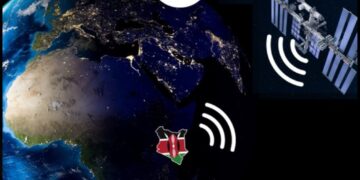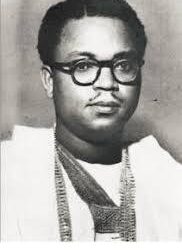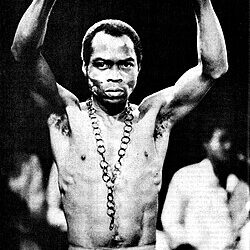President Bola Ahmed Tinubu, in his 65th Independence Day broadcast on Wednesday, paid tribute to Nigeria’s founding fathers while defending his administration’s tough economic reforms.
The President acknowledged that Nigerians are “racing against time” to address decades of underinvestment in power, roads, and infrastructure, but assured citizens that the country has “turned the corner” towards recovery.
He also pledged greater support for young people, security, and social welfare, while outlining his vision of a prosperous and self-reliant Nigeria.
Here are 18 major takeaways from Tinubu’s Independence Day speech:
1. Tribute to Independence Heroes – Tinubu honoured nationalist leaders such as Nnamdi Azikiwe, Obafemi Awolowo, Ahmadu Bello, and Margaret Ekpo, reaffirming their dream of a united and prosperous Nigeria.
2. Acknowledgement of National Progress – He highlighted progress since 1960, noting growth in education, healthcare, infrastructure, and technology—from 120 secondary schools at independence to over 23,000 today, and from 2 tertiary institutions to more than 690.
3. Resilience Through Challenges – Tinubu reflected on Nigeria’s survival of the civil war, years of military rule, and political crises, stressing the nation’s enduring determination.
4. Commitment to Nation-Building – He described his government’s mission as the “unfinished business” of building a stronger Nigeria, following the sacrifices of past leaders.
5. Inherited a Weak Economy – The President admitted his administration met a near-collapsed economy caused by decades of poor policy management.
6. Bold Economic Reforms – He justified the removal of fuel subsidies and unification of the exchange rate system, noting these measures freed funds for education, healthcare, security, agriculture, and infrastructure.
7. Signs of Economic Recovery – Tinubu pointed to Q2 2025 GDP growth of 4.23% (the fastest in four years), inflation reduced to 20.12%, and foreign reserves rising to $42 billion.
8. Twelve Key Economic Milestones –
Record non-oil revenue exceeding ₦20 trillion by August 2025.
Debt service-to-revenue ratio cut from 97% to below 50%.
Settlement of “Ways and Means” debt.
Foreign reserves at a six-year high.
Tax-to-GDP ratio increased to 13.5%.
Five consecutive quarters of trade surplus; non-oil exports up to 48%.
Oil production recovered to 1.68m barrels per day, with local PMS refining resumed.
Stabilisation of the naira; multiple FX rates scrapped.
₦330bn disbursed to 8m poor households.
Expansion of coal and solid minerals sector.
Major transport and infrastructure projects underway.
Stock market records broken, credit ratings upgraded, and CBN interest rate cuts.
9. Infrastructure Gap Acknowledged – Tinubu conceded that Nigeria still lags in electricity, ports, and roads, but pledged to correct decades of underinvestment.
10. Improved Security Situation – He praised the armed forces for gains against Boko Haram, IPOB/ESN, and banditry, noting improved peace in many parts of the North-East and North-West.
11. Youth Empowerment Initiatives – He described youth as Nigeria’s greatest asset and highlighted several programmes, including:
NELFUND: 510,000 students accessed nearly ₦100bn in loans.
Credicorp: ₦30bn in loans for vehicles, housing, solar energy, and devices.
YouthCred: NYSC members accessing consumer credit.
iDICE: A multi-billion naira programme to boost digital and creative industries.
12. Support for Vulnerable Citizens – Over 8m households have benefitted from cash transfers under the Social Investment Programme.
13. Global Recognition of Reforms – Sovereign credit ratings improved, foreign investor confidence rising, and the Nigerian stock market reached new highs.
14. Central Bank Policy Shift – Interest rates cut for the first time in five years, reflecting restored macroeconomic stability.
15. Message of Hope Amid Hardship – Tinubu acknowledged the high cost of living but insisted reforms were vital to prevent bankruptcy and safeguard the future.
16. Call for Productivity and Patriotism – He urged Nigerians to produce more, support local goods, pay taxes, and reduce reliance on imports.
17. Unity and Shared Responsibility – He appealed for collaboration across federal, state, and local governments, stressing that nation-building is a collective task.
18. Vision of a Self-Reliant Future – Tinubu assured citizens that “the dawn of a new, prosperous, self-reliant Nigeria” is here, closing with a prayer for divine blessings on the nation.




















































































 EduTimes Africa, a product of Education Times Africa, is a magazine publication that aims to lend its support to close the yawning gap in Africa's educational development.
EduTimes Africa, a product of Education Times Africa, is a magazine publication that aims to lend its support to close the yawning gap in Africa's educational development.